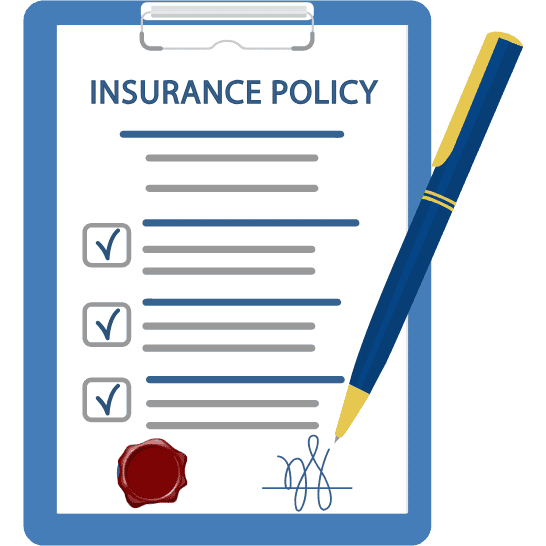How To Make Debt Settlement Deal With Creditors?

Dealing with debt can be overwhelming, and when your debts begin to pile up, it may seem impossible to find a way out. However, one solution that can provide relief is debt settlement. Debt settlement allows individuals to negotiate with their creditors to reduce the total amount owed, offering a fresh start and the possibility of regaining financial stability. If you're struggling with unsecured loans, credit cards, or other debts, negotiating a settlement deal might be an effective way to resolve your financial difficulties. In this article, we will provide an in-depth guide on how to make a debt settlement deal with creditors, and how services like RupeeRelief can help you navigate the process. Debt settlement is a negotiation process where a borrower works with their creditors to reduce the total outstanding debt. This typically involves paying a lump sum that is lower than the total debt owed, in exchange for the creditor agreeing to forgive the remaining balance. Debt settlement is typically used for unsecured debts, such as credit cards, personal loans, and medical bills. While it offers a way out of overwhelming debt, it’s important to note that debt settlement can have long-term implications for your credit score, and it’s essential to carefully weigh the benefits and risks before moving forward with a settlement. Making a debt settlement deal with creditors can be complex, but with the right approach, you can improve your chances of reaching an agreement. Here’s a step-by-step guide on how to make a debt settlement deal: Before you start negotiating with your creditors, it’s crucial to understand the full extent of your financial situation. This means reviewing your income, expenses, and the total amount of debt you owe. Having a clear picture of your finances will allow you to set a realistic budget for debt settlement negotiations. Create a list of all your debts, including the outstanding balances, interest rates, and the names of your creditors. Also, take into account any assets you may be able to liquidate or other sources of income that could help you make a lump sum payment during settlement negotiations. Once you have a clear understanding of your finances, the next step is to reach out to your creditors. This can be done by phone, email, or through a formal letter, depending on your creditor’s preferences. It’s important to approach your creditors in a calm and professional manner, and explain your situation openly. You may want to start by explaining that you are facing financial difficulties and are seeking a resolution to your outstanding debts. Some creditors may be willing to work with you, especially if they believe they might not recover the full amount of the debt through other means, such as legal action. In most cases, creditors are open to negotiating a settlement if you offer them a lump sum payment. However, you should be prepared for the possibility of multiple rounds of negotiation. The creditor’s goal is to recover as much of the debt as possible, while your goal is to reduce the total amount owed. You may start by offering a percentage of the total debt, typically between 30% and 50%. The actual percentage will depend on factors like how overdue your debt is, how much you can afford to pay, and the creditor’s willingness to negotiate. It’s also worth noting that some creditors may require you to pay the settlement amount in a single lump sum, while others may offer a payment plan over a set period. Once you and your creditor have reached an agreement, it’s important to get everything in writing. This written agreement should outline the settlement amount, the terms of payment, and any other relevant conditions. Make sure that the creditor agrees to forgive the remaining balance once the settlement amount has been paid in full. Without written confirmation, there is a risk that the creditor may change the terms later or attempt to collect the remaining balance. A written agreement provides both parties with legal protection and ensures that the settlement deal is binding. After securing the agreement in writing, you will need to make the payment as agreed. In some cases, creditors may request that the payment be made in one lump sum, while in other cases, they may offer a payment plan. Be sure to keep a record of all payments made and any receipts or confirmation emails from the creditor. Once the payment has been made, ensure that the creditor reports the settlement to the credit bureaus. This will allow you to begin rebuilding your credit score and moving forward from your financial difficulties. After settling your debts, it’s important to monitor your credit report regularly to ensure that the creditor has reported the settlement correctly. If there are any discrepancies or errors, contact the creditor to resolve the issue. Settling a debt can impact your credit score, but over time, your score can improve as you continue to make timely payments on any remaining debts. Be patient, and take the necessary steps to rebuild your credit. If you find the debt settlement process overwhelming or don’t feel confident in negotiating with your creditors, you can consider seeking the help of a professional debt settlement service. These services can assist you in negotiating with creditors, guiding you through the process, and ensuring that the terms of the settlement are favorable. Services like RupeeRelief can be especially helpful in providing expert advice, managing communication with creditors, and ensuring that your settlement deal is fair. They understand the nuances of debt negotiations and can help ensure that your rights are protected throughout the process. By working with a professional debt settlement service, you can avoid common mistakes and increase your chances of a successful settlement. Moreover, they can also help you understand the potential impact on your credit score and provide guidance on rebuilding your financial health after a settlement. Debt settlement is not always the best option for everyone. It’s important to consider the pros and cons before pursuing this approach. Debt settlement can be a good choice if: However, debt settlement should be considered with caution as it can have a negative impact on your credit score. Additionally, not all creditors may be willing to settle, and the process can take time. Making a debt settlement deal with creditors can be an effective way to regain control over your finances and work your way out of debt. However, it’s essential to approach the process carefully, gather all relevant information, and consider seeking professional help if necessary. Services like RupeeRelief can offer invaluable support and guidance to ensure that you navigate the settlement process successfully. If you are struggling with debt, remember that there are options available. With the right approach, patience, and support, you can negotiate a fair settlement, reduce your debt burden, and move toward a healthier financial future.What Is Debt Settlement?
How to Make a Debt Settlement Deal with Creditors
1. Assess Your Financial Situation
2. Contact Your Creditors
3. Negotiate a Settlement Amount
4. Get the Agreement in Writing
5. Make the Payment
6. Monitor Your Credit Report
The Role of Professional Debt Settlement Services
When Should You Consider Debt Settlement?
Final Thoughts

